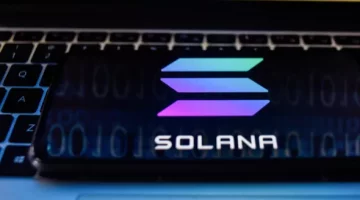How to Securely Store Bitcoin: 5 Expert Tips
As the popularity of cryptocurrencies like Bitcoin continues to grow, ensuring the security of your digital assets becomes paramount. Bitcoin, being a decentralized and borderless form of value, requires a special attention when it comes to storage. You must have a wallet for storing cryptocurrency such as an Android BTC wallet. The lack of a central authority means that you are solely responsible for safeguarding your holdings. In this article, we will delve into five tips to securely store your Bitcoin and protect your investment from potential threats.
How can you store cryptocurrency?
A cryptocurrency wallet is a digital tool that allows you to store, manage, and interact with your cryptocurrencies, such as Bitcoin, Ethereum, and other altcoins. It's a crucial component of the cryptocurrency ecosystem, serving as a secure repository for your digital assets. Cryptocurrency wallets come in various forms, each offering different levels of security and convenience.
What are the types of Cryptocurrency wallets?
Selecting the right wallet is the foundation of secure cryptocurrency storage. There are different types of wallets to consider:
-
Hot Wallets:
A hot wallet refers to any cryptocurrency wallet that is connected to the internet and is actively used for transactions and quick access. These wallets are typically more convenient for daily activities but are also more vulnerable to online threats due to their internet connectivity.
-
Cold Wallets:
A cold wallet, on the other hand, refers to a cryptocurrency wallet that is kept offline, disconnected from the internet. This isolation enhances security, as it greatly reduces the risk of online threats accessing your funds.
-
Hardware Wallets:
Hardware wallets are physical devices that allows the highest security level to store cryptocurrencies. They are often USB-like devices that generate and store your private keys offline. Since they are not connected to the internet except during transactions, they are largely immune to online hacking threats. Hardware wallets are considered the gold standard for the long-term storage of cryptocurrencies and are a popular choice for those who prioritize security.
-
Software Wallets:
Software wallets are applications that you install on your computer, smartphone, or tablet. They are more convenient for everyday use but can vary in terms of security. Software wallets can be categorized further:
- Desktop Wallets: Installed on your computer, these wallets offer good security and control. Examples include Electrum (for Bitcoin) and Exodus (for various cryptocurrencies).
- Mobile Wallets: These apps are designed for smartphones and are convenient for quick transactions. Some examples are Trust Wallet, Coinbase Wallet, Xverse and BRD.
- Web Wallets: Online wallets are available on web browsers. While they are easy to use, they pose slightly higher security risks due to their online nature. Some exchanges also offer web wallets for convenience, but they might not provide full control over your private keys.
-
Paper Wallets:
A paper wallet involves generating your private and public keys offline and printing them on paper. Since they are offline and not susceptible to online threats, paper wallets offer a high level of security. However, they require careful handling to avoid loss or damage.
How can you securely store Bitcoin?
Securing your Bitcoin is crucial to protect your investment from potential threats like hacking, theft, and loss. By understanding the different types of wallets and practicing good security measures, you can ensure that your cryptocurrencies are well-protected. Here's a comprehensive guide on how to securely store your Bitcoin:
-
Use Strong Passwords and Encryption
When setting up a wallet, whether hardware or software, using a strong and unique password is crucial. Using easily guessable passwords should be avoided. Also, refrain from reusing passwords from other accounts. Consider using a combination of numbers, upper and lower case letters and special symbol or characters.
-
Enable Two-Factor Authentication (2FA)
Two-factor authentication (2FA) is an essential security measure that adds an extra step to the login process. It requires you to provide a second piece of information in addition to your password. This could be a code sent to your mobile device or generated by an authenticator app. Even if someone manages to obtain your password, they would still need the second factor to access your wallet.
Many wallets and exchanges offer 2FA option. Make sure to enable it to significantly reduce the risk of unauthorized access.
-
Backup Your Wallet Properly
Backing up your wallet is a critical step in case of hardware failure, loss, or theft. Most wallets provide you with a recovery seed or mnemonic phrase—a sequence of words that can be used to restore your wallet. Write down this seed on a piece of paper and store it in a safe and secure location, preferably offline. Avoid taking pictures or saving them digitally, as this exposes them to potential hacks.
-
Stay Vigilant Against Phishing and Scams
Phishing attacks and scams are prevalent in the cryptocurrency space. Hackers often create fake websites, emails, or social media profiles that mimic legitimate platforms to steal your sensitive information. Be cautious when clicking on links or providing your private information.
Always double-check the URL of websites and ensure they are the official ones. Avoid clicking on suspicious links in emails or messages, and do not share your private keys, recovery seeds, or any personal information with anyone. Educate yourself about common scams and stay informed about the latest security practices.
-
Secure Keys
- Public and Private Keys:
A cryptocurrency wallet consists of a pair of cryptographic keys: a public key (used to receive funds) and a private key (used to access and send funds). It's crucial to keep your private key secret, as anyone who possesses it can access your funds.
- Seed Phrase:
Many wallets use a recovery seed, a sequence of words, to back up and recover your wallet. This seed can be used to restore your wallet in case it's lost, stolen, or damaged. Safeguarding your seed phrase is essential to maintain access to your cryptocurrencies.
Remember, the security of your cryptocurrency ultimately depends on your vigilance and the precautions you take. By following these steps and staying informed about evolving security practices, you can significantly reduce the risk of your cryptocurrency being compromised.
More to Read:
Previous Posts:







